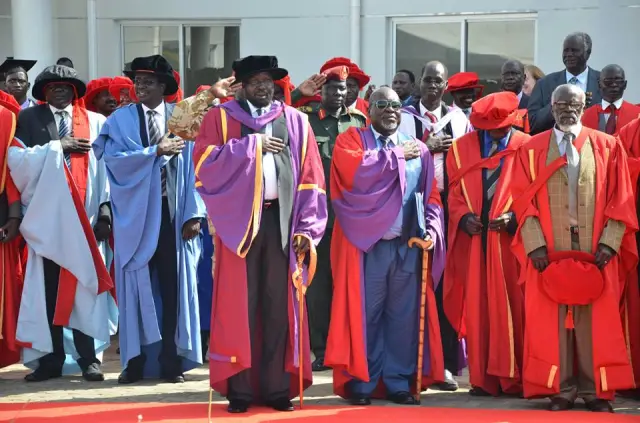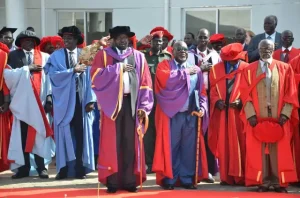Modern society associates a university degree with high earning power and success. In line with this assumption, families make every effort to fund university education, hoping that upon graduation, their sons and daughters will find jobs and transform socioeconomic situations. This assumption no longer holds as most university graduates globally struggle to find jobs after leaving university.
A recent article in the Washington Post published on November 19, 2023, revealed the “unusual shift” in the job market after the pandemic. According to the article, the unemployment rate for recent university graduates is higher than that of other workers. Another data from the Federal Reserve Bank of New York stated that recent college graduates have a higher unemployment rate than other workers.
In Africa, African Leadership University notes that 45% of recent university graduates are jobless, observing that it takes at least five years to get a job in Kenya and Tanzania, and up to six years in North Africa. The rate of unemployment among new university graduates in South Sudan reflects a similar trend. The unemployment rate in South Sudan stands at 12.98%, in a country where the literacy rate is less than 30%. This means more than half of the 4,500 students who graduated on Saturday from the University of Juba are likely to join the list of unemployed.
Of course, several reasons are responsible for this not-so-encouraging reality. The challenges recent university graduates face in finding work are partly attributable to the quality of the university education, limited technical competencies, and economic crisis. Yet, an employment infrastructure that devalues merits and discourages entrepreneurship and small business development is not one you can expect to address the rising unemployment among recent university graduates in South Sudan.
The government needs to develop a responsive governance infrastructure and create an enabling environment that promotes entrepreneurship and small business development for recent university graduates to find or create jobs.
In South Sudan, new university graduates struggle to find or create jobs. One of the key reasons is corruption. Corruption is choking both the public and private sectors, as nepotism and bribery channel employment opportunities to those underserving them. One time, an opinion piece published on PaanLuelwel’s blog described the South Sudan National Oil and Gas Company (Nilepet), a government lucrative parastatal, as “a corruption-driven entity’, accusing the then managing director of only employing relatives and friends. This means regardless of the competency of most recent graduates, what is likely to get any of them a job in a government institution is blood relation or friendship.
Corruption, too, infests the Humanitarian sector. Sam Mednick published an article titled: “South Sudan Aid Sector ‘infested’ with bribery” reports how bribery influences access to grants and jobs in NGOs and UN Agencies. H narrated a situation where one has to pay a bribe to win a UN Agency or NGO’ grant. The culture of corruption in the nation’s economy undermines access to jobs and innovation for new university graduates.
But corruption is not the only challenge hindering access to jobs for recent university graduates in South Sudan. lack of an enabling environment that promotes entrepreneurship and business development limits the ability of companies to hire new graduates or start new businesses. In 2019, Arden Finn and Jan Der Goltz carried out surveys on businesses and enterprises in South Sudan. The findings revealed that two in five commercial businesses are foreign-owned in South Sudan, employing both foreign nationals and South Sudanese. This raises competition for the few available jobs. This means that three in five foreign-owned companies are likely to hire nationals from their home countries and take up jobs, including jobs like waiters and waitresses in South Sudan.
This illustrates that apart from the calibre of university graduates, South Sudan’s public infrastructure, domestic laws, rules, and policies prevent economic activity that could create or expand employment opportunities. In South Sudan, the government’s role in guaranteeing employment opportunities needs to be reconsidered. In particular, the country needs to create an atmosphere that draws in investors and fosters innovation so that new graduates can make a positive impact.






